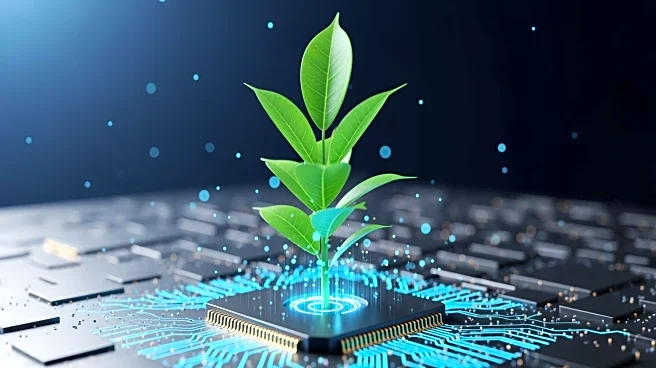What's Happening?
The regenerative agriculture market is projected to experience significant growth, with its value expected to rise from USD 9.2 billion in 2025 to USD 18.3 billion by 2030, reflecting a compound annual
growth rate (CAGR) of 14.75%. This growth is driven by increasing consumer demand for sustainable food, corporate net-zero pledges, and supportive government policies. Digital tools and tokenized carbon marketplaces are making it easier for smallholders to participate, expanding access to ecosystem-service revenues and enabling scalable carbon monetization. Major food companies are incorporating regenerative agriculture into their sustainability plans, providing growers with stable revenue streams and reducing investment risks.
Why It's Important?
The expansion of the regenerative agriculture market is significant for several reasons. It aligns with global efforts to combat climate change by promoting practices that restore soil health and enhance biodiversity. The market's growth is also indicative of a shift in consumer preferences towards sustainably sourced food, which is influencing corporate strategies and supply chain management. This trend could lead to increased investment in agricultural innovation and technology, benefiting farmers and the environment. Additionally, the market's growth supports economic development in rural areas by providing new revenue streams and reducing financial barriers for farmers.
What's Next?
As the market continues to grow, further integration of digital tools and carbon marketplaces is expected, which will likely enhance the scalability and efficiency of regenerative practices. Companies may increase their commitments to regenerative agriculture, potentially leading to more widespread adoption and innovation in the sector. Policymakers might also introduce additional incentives to support these practices, further driving market growth. The ongoing development of strategic partnerships and mergers among key players could shape the competitive landscape, fostering collaboration and innovation.
Beyond the Headlines
The rise of regenerative agriculture could have broader implications for global food security and environmental sustainability. By improving soil health and biodiversity, these practices can enhance resilience to climate change and reduce dependency on chemical inputs. This shift may also influence cultural attitudes towards food production and consumption, promoting a more sustainable and ethical approach to agriculture.









